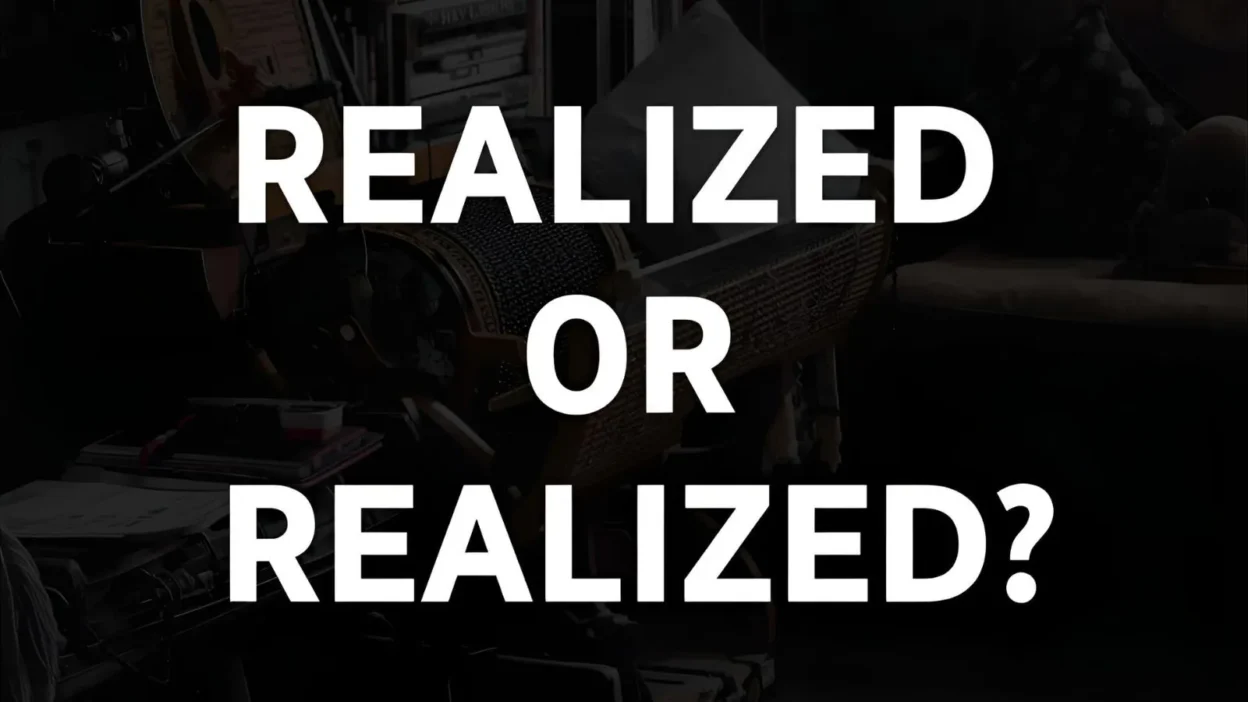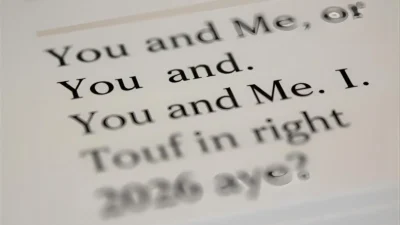Have you ever written “realised” and wondered if it should be “realized”? You’re not alone.
This simple spelling question sends thousands of people to Google every day.
Whether you’re writing an email, a school paper, or a business report, choosing the correct spelling matters.
The confusion comes from the difference between British English and American English—two styles that share the same language but follow different spelling traditions.
This guide will give you a clear, simple, and complete answer.
You’ll learn the meaning, history, and correct context of both spellings.
By the end, you’ll know which one to use, why both are correct, and how to make sure your writing fits your audience perfectly.
Realised or Realized – Quick Answer
Both “realised” and “realized” mean to become aware of something or to make something happen.
✅ “Realized” — preferred in American English
✅ “Realised” — preferred in British English and Commonwealth countries
Examples:
- American: I realized I left my phone at home.
- British: I realised I left my phone at home.
👉 Both are correct — the only difference is regional spelling, not meaning.
The Origin of “Realised” or “Realized”
The word comes from the French “réaliser”, meaning to make real. When English adopted it in the 1600s, the spelling evolved differently in various regions.
- Early English texts used “realize” with a “z” because of its Greek root “-izein.”
- Later, British English adopted “-ise” endings (like “organise,” “realise,” “recognise”) under French influence.
- Meanwhile, American English, following Noah Webster’s simplified spelling reforms, kept the “-ize” form.
So both spellings have historical roots — it’s not a matter of right or wrong, but of linguistic tradition.
British English vs American English Spelling
Here’s a quick comparison of common “-ise” and “-ize” words:
| British English (-ise) | American English (-ize) | Meaning |
| realise | realize | become aware of something |
| organise | organize | arrange or plan |
| recognise | recognize | identify or know again |
| apologise | apologize | express regret |
| civilise | civilize | bring to a more developed state |
Rule of thumb:
- Use “-ize” in the U.S.
- Use “-ise” in the U.K., Australia, Canada, India, and South Africa
Which Spelling Should You Use?
Your choice should depend on your audience and region:
- 🇺🇸 United States: Always use “realized”
- 🇬🇧 United Kingdom, Australia, India, South Africa: Use “realised”
- 🌍 International or online writing: Use “realized” — it’s more recognized globally and accepted in most contexts.
Tip: Many international companies (like Google or Microsoft) prefer American English spelling for consistency.
Common Mistakes with “Realised” or “Realized”
❌ Using both spellings in the same document:
I realised my goal and realized it quickly.
✅ Pick one style and stay consistent.
❌ Assuming “realised” is wrong because of spellcheck:
Some spellcheck tools default to U.S. English, so “realised” may appear incorrect.
✅ Just change your language settings to “British English.”
❌ Mixing “-ise” and “-ize” forms:
He organised and realized the project.
✅ Use one form consistently: He organised and realised the project.
“Realised” or “Realized” in Everyday Examples
Here’s how both appear in real-life contexts:
In Emails:
- British: I just realised I missed your message.
- American: I just realized I missed your message.
In News Headlines:
- She realised her dream of becoming an artist. (BBC UK)
- He realized his dream of starting a business. (New York Times)
On Social Media:
- Just realised I’ve been saying it wrong my whole life!
- Just realized how much I love this city!
In Formal Writing:
Both are accepted — just stick to one version throughout your paper or report.
“Realised” or “Realized” – Google Trends & Usage Data
According to Google Trends, “realized” dominates globally due to U.S. influence online, but “realised” is still strong in the UK, Australia, and India.
| Country | Most Common Spelling |
| United States | Realized |
| United Kingdom | Realised |
| Australia | Realised |
| Canada | Realized |
| India | Realised |
In summary: “Realized” is more frequent worldwide, but “Realised” remains standard in British regions.
FAQs About “Realised” or “Realized”
1. Is “realised” correct in the UK?
Yes. “Realised” is the standard British spelling.
2. Is “realized” wrong in British English?
No. Some UK dictionaries accept “realized,” but “realised” is preferred.
3. Do Oxford Dictionaries use “-ize” or “-ise”?
Oxford prefers “-ize” (e.g., “realize”), though both are valid in British English.
4. Which is more common on the internet?
“Realized” is more common due to American content dominance online.
5. Should I use “realized” in academic writing?
Follow your style guide: use “realised” for British institutions, “realized” for American.
6. Why does my spellchecker flag “realised” as wrong?
It’s probably set to U.S. English — switch to “English (UK)” in your settings.
7. Are “realised” and “realized” pronounced differently?
No — both are pronounced /ˈriːəlaɪzd/.
Conclusion
Both “realised” and “realized” are correct. The difference lies in geography, not grammar. If you’re writing for a British or Commonwealth audience, choose “realised.” If your audience is American or global, “realized” is safer and more widely recognized.
The most important rule is consistency — pick one style and use it throughout your writing. Whether you’re drafting an email, publishing a blog post, or submitting an academic paper, consistency builds professionalism and clarity.
So next time you pause before typing, remember: both forms are right — it’s just a matter of where your readers are.
Discover More Articles:
- Repass or Repast for Funeral What’s the Correct Term to Use? 2026
- Goodnight or Good Night What’s the Correct Spelling? 2026
- “Like or As Meaning, Difference, and Correct Usage Explained” 2026
- Mama or Momma What’s the Right Spelling and When to Use Each? 2026



